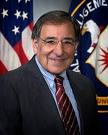What the President has on his mind, Defense Secretary has on the tip of his tongue

-[I]n terms of foreign policy, there is no major difference between Barack Obama and his predecessor. And Mr. Panetta only explicitly presented what is implicit in Obama’s “Change that never was there” policy.
The newly appointed US Defense Secretary made his first foreign tour in his new capacity. Not surprisingly, the two countries he visited were Iraq and Afghanistan, where the US is waging two of its current three wars. Also unsurprisingly, the topic of Libya arose now and again.
Leon Panetta, the former CIA director and before that the White House Сhief of Staff during President Bill Clinton’s tenure, has for a long time been one of the most prominent behind-the-doors figures in the US establishment. Now, things have changed – in his capacity of the Defense Secretary he has become a public figure, whose words sometimes matter much more than he himself would like them to.
Panetta’s inexperience as a public politician has been noticed by many observers. In Iraq and Afghanistan he made it his goal to visit as many US military units and meet as many US soldiers as the short visit allowed. He did not spare words in praising the soldiers, saying that the main aim of his tour was to personally thank every US soldier for his/her courage and sacrifices. In this respect he tried to copy his predecessor Robert Gates, who is still very popular among the US troops and whose priority always was the welfare of the soldiers.
At the same time, observers have noticed several slips of the tongue and even gaffes in Mr. Panetta’s remarks. Speaking to the US soldiers about their presence in Iraq he said, “The reason you guys are here is because on 9/11 the United States got attacked.” Well, this used to be part of George W. Bush’s rhetoric back in 2003, when he tried to connect Saddam Hussein’s regime with the 9/11 terrorist attacks. Most Democrats, including the current President Barack Obama, have always rejected such claims.
Also, speaking about Libya, Panetta said that the central U.S. objective is “to do what we can to bring down the regime of Gaddafi.” This also goes counter to the official US line that the US engagement in the war against Gaddafi aims only at protecting the civilians.
Other gaffes in Mr. Panetta’s speeches included using harsh and sometimes rude wordings in characterizing some individuals and phenomena (like calling Osama bin Laden “that son of a bitch” or Iraq – “a damned country” having “a hell of a lot of resources”). All this might seem funny for observers in the US characterizing the new Defense Secretary’s personally. But for an outside observer, these gaffes really disclose the inner and deeply concealed trends dominating the actions of the present administration.
Indeed gaffes and slips of the tongue are hardly to be expected from a person of Mr. Panetta’s standing and experience. Therefore, they reflect the real intentions of the current administration whose topmost representative would not like to pronounce himself.
It is clear that the campaign in Libya with the US participation has long ago ceased to be aimed at “protecting the civilians” and will not stop until Gaddafi is removed from power. But one would not expect Obama to state it publicly. Hence the burden was taken by his Defense Secretary whose words could – should the need arise – be explained by his “inexperience”.
As for Iraq, the question why the US troops are still there and why they invaded the country back in 2003 has no plausible answer. Saddam Hussein was never connected with Al Qaeda and weapons of mass destruction were never found there. But the US troops are still in Iraq. Mr. Panetta was simply forced to give at least some explanation. And coming back to George W. Bush’s rhetoric was only too natural.
This brings us to a conclusion that has been looming for some time. In fact, in terms of foreign policy, there is no major difference between Barack Obama and his predecessor. And Mr. Panetta only explicitly presented what is implicit in Obama’s “Change that never was there” policy.
Stop NATO e-mail list home page with archives and search engine:
http://groups.yahoo.com/group/stopnato/messages
Stop NATO website and articles:
http://rickrozoff.wordpress.com

